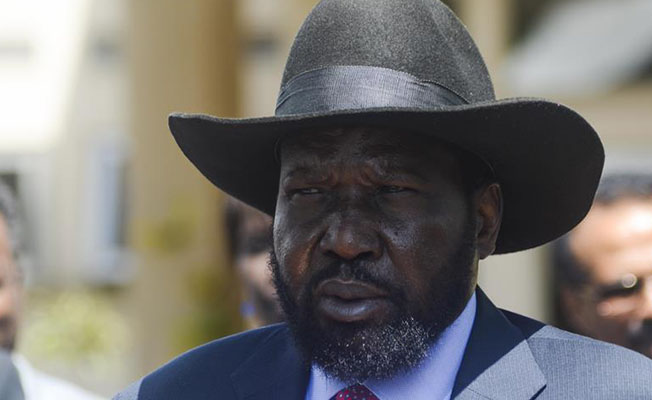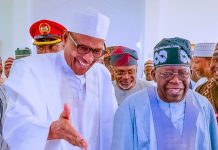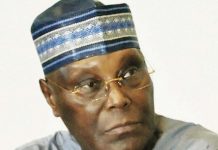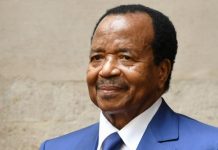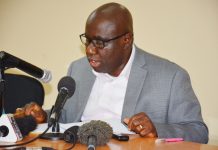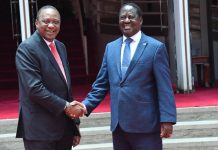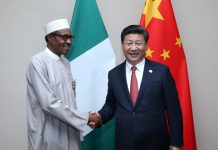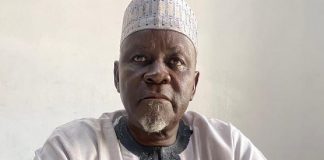The main political opponents in South Sudan have signed a final power-sharing deal which has prompted President Salva Kiir to call for unity in the country torn by a civil war that has claimed the lives of thousands of people. President Kiir and his bitter rival, Riek Machar, attended the peace talks in neighbouring Sudan to sign the deal. The fall-out is that Mr. Machar is set to embrace a unity government where he will now serve as the first of five Vice- Presidents in a power-sharing deal.
The deal, which paves the way to a final peace accord aimed at ending the war in the world’s youngest country, was signed in the presence of Sudanese President, Omar al-Bashir, and his counterparts from Kenya, (Uhuru Kenyatta) and Uganda (Yoweri Museveni), along with foreign diplomats.
A final peace deal will give all the parties three months to form a transitional government which will then hold power for three years. The talks came as part of a regional push aimed at achieving peace in South Sudan, which plunged into a devastating conflict just two years after its independence from Sudan. In his speech, President Kiir declared, “The agreement we have just signed today must map the end of conflict and war in our country. We should … rededicate ourselves to unite our people and work for free speech, peaceful transfer of power through the ballot boxes rather than through bullets.”
The rebel leader, Machar, in turn, urged the regional East African bloc known as Intergovernmental Authority on Development, IGAD, which is pushing the latest peace talks, to ensure that the deal is implemented. “I would urge … IGAD to focus after this on the implementation of the agreement,” Machar said in his address.
The 5-year old conflict in South Sudan began after Kiir accused his then-Vice president, Machar, of plotting a coup against him in 2013. Kiir and Machar’s factions have already agreed on a permanent ceasefire and withdrawal of their forces from urban areas, in the latest talks hosted by Sudanese leader, Bashir. The power-sharing deal lays out a plan for a 35-minister transitional government including 20 allies of President Kiir and nine backers of Machar, along with representatives of other rebel factions.






